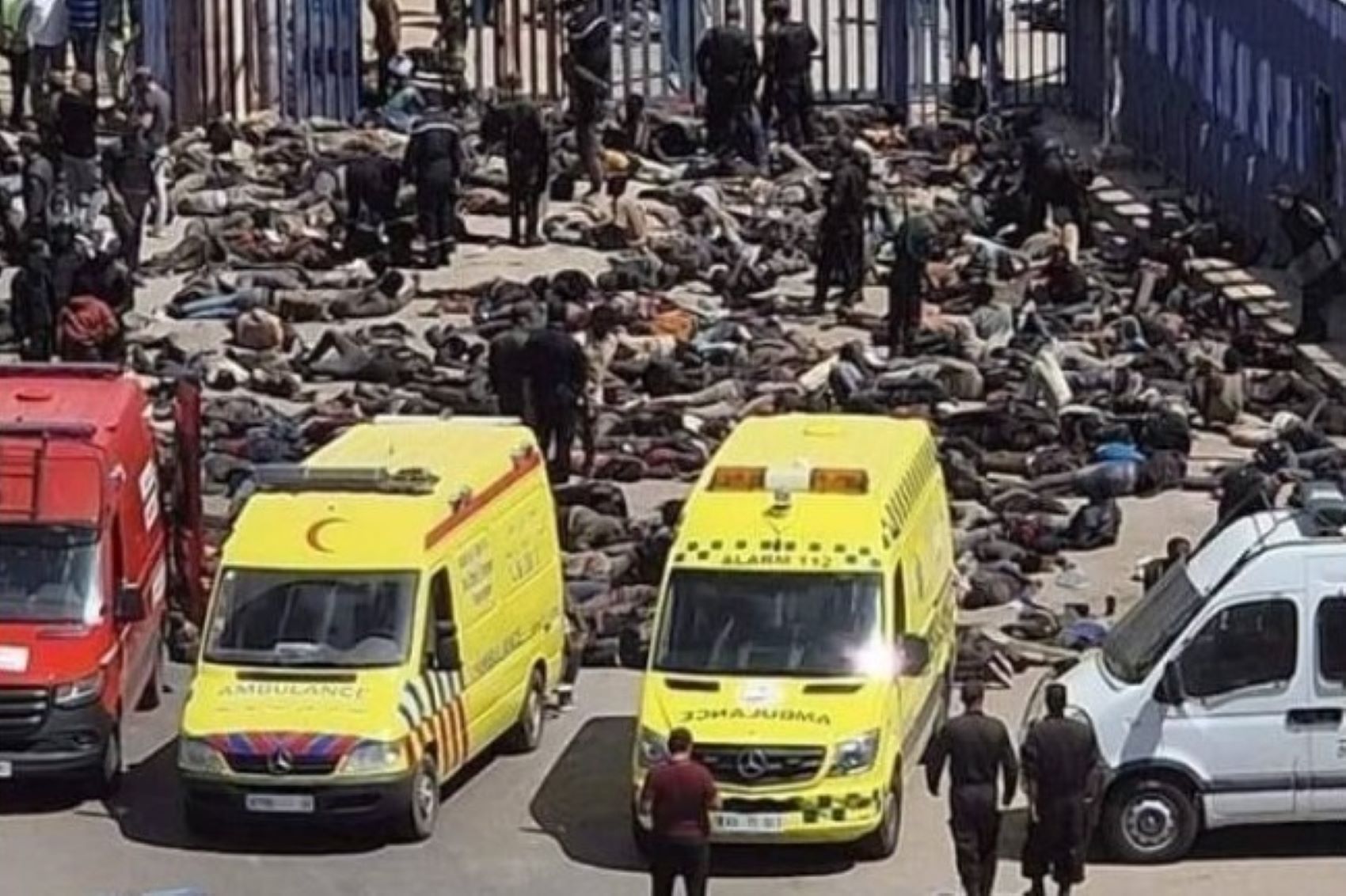It was a year ago this Saturday: the tragedy in which dozens of migrants died on the Spanish-Moroccan border in Melilla, one of the European country's North African enclave cities. Amnesty International demands that Spain and Morocco provide "justice for the victims" and that there is an "apparent cover up" of the disastrous events of June 24th, 2022, when a still-undetermined number of people died after Spanish and Moroccan border authorities reacted to an assault on the border fence in Melilla. Amnesty says 76 of the estimated 2,000 people who tried to cross are still missing and it raises the death toll to more than 100, an estimate far higher than the one officially given by the authorities: 23 dead, according to Morocco. "The Spanish and Moroccan authorities not only continue to deny any responsibility, but also prevent attempts to find the truth. (...) Efforts to identify the dead and inform their relatives have been blocked," said the secretary general of Amnesty International, Agnès Callamard, in a statement issued on Friday.
For the human rights NGO, the reaction of the Spanish and Moroccan governments "reflects the continuing harmful treatment based on race and migration status" applied by their security forces at the border. In the specific case of the Spanish state, Amnesty denounces that the authorities continue to "carry out unlawful practices such as collective expulsions, often with excessive use of force". As the first anniversary of the disaster is reached, the organization regrets that "no proper investigation has been opened into the allegations of crimes under international law that were committed on both sides of the border" despite the fact that, as they say, they "clearly occurred under Spanish jurisdiction" because the fences and the border posts are in its territory.
The organization argues that this entails "an obligation to investigate all the actions that took place there", but in the past year "no official, Moroccan or Spanish, has appeared before justice for the rights violations that caused the deaths, disappearances and injuries of so many people". Several international bodies, including the Council of Europe, have also repeatedly demanded from Spain an "independent and effective" investigation into the deaths at the Melilla fence.
More than 100 dead, according to Amnesty
Amnesty International puts the death toll at more than 100 on June 24th, 2022 in Melilla, compared to the 23 officially recognized by Morocco, based on testimonies from survivors who point to the fact that there were people who died in the bus transfer from the border to the south of the country "without receiving any kind of medical assistance despite the severity of their injuries". In total, according to their data, around 500 of the migrants who tried to enter Melilla were transferred "by force" to "remote areas of Morocco", located more than a thousand kilometres from the border, "where they were stripped of their possessions and abandoned by the side of the road without medical attention”. "We are facing an enormous number that speaks for itself about the suffering endured by these people at the border", the organization points out, drawing attention to the more than 70 who disappeared after the attempt to enter Melilla, for whom there are fears that "many could have died" given that their relatives do not know their whereabouts.
In a report published in December last year, Amnesty said that events in Melilla were "predictable and the loss of life, avoidable". The report used eye witness reports to piece together an account of what happened. It disputed some initial reports that people had died falling from fences after the mass assault on the border, and instead pointed to many deaths and injuries occurring after the border authorities used tear gas, sprays, rubber bullets, batons and even knives and rocks to corner hundreds of people in confined spaces. In this situation crowd crushes occurred and subsequently many of the injured were given no medical attention and some were in fact assaulted further by authorities on both sides.
There is "obstruction" by Spanish and Moroccan authorities
The NGO denounces that "the Moroccan authorities have hindered the search initiatives for the missing and the dead", denying visas to relatives so that they could enter and attempt to identify the bodies, most of which "are still in the Nador morgue a year later". "Morocco has declared that they will not bury the corpses without identification, but they also do not facilitate the identification of the bodies", points out Amnesty, also complaining that no progress has been made on the initiative taken by the Sudanese foreign ministry three months ago under which it was proposes that relatives of the victims, many of whom were from Sudan, send DNA samples to Morocco. This is part of the "absolute helplessness" in which the families of the victims find themselves, to whom "neither Spain nor Morocco has offered any compensation or help to find out the possible whereabouts of migrants who have remained missing for a year after the massacre" at the border of Melilla, which has now been "armoured", just like that of Ceuta.

